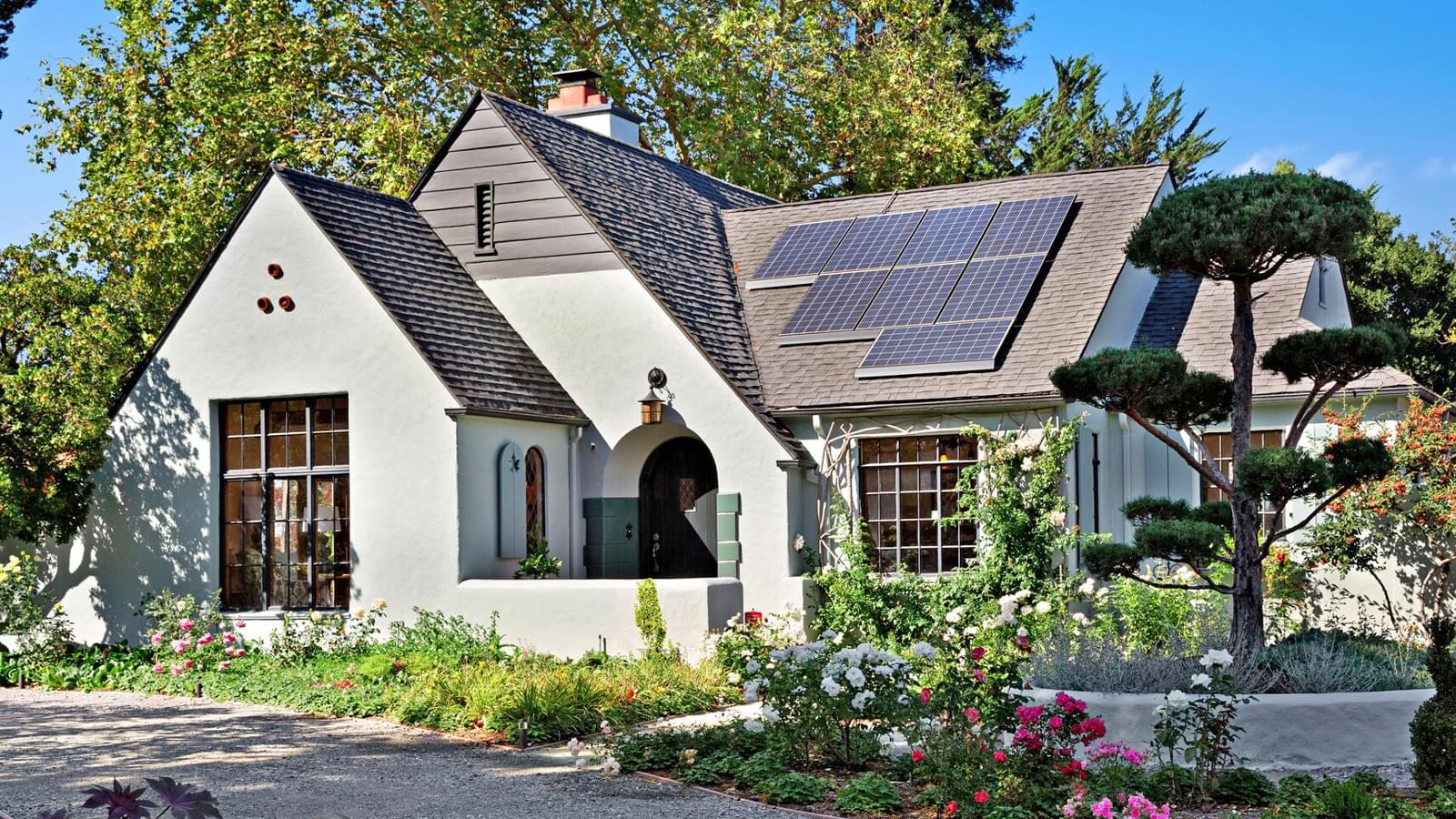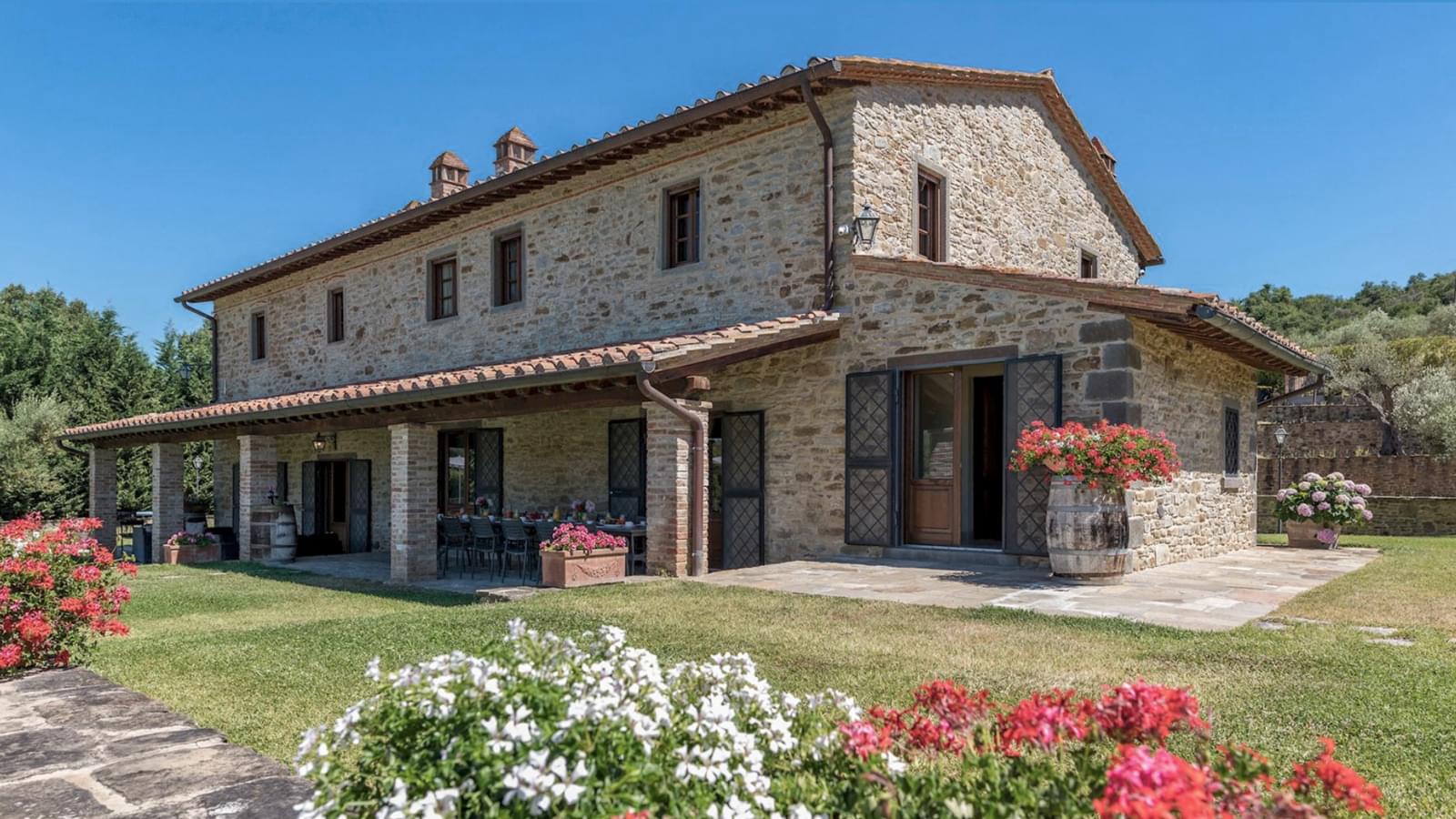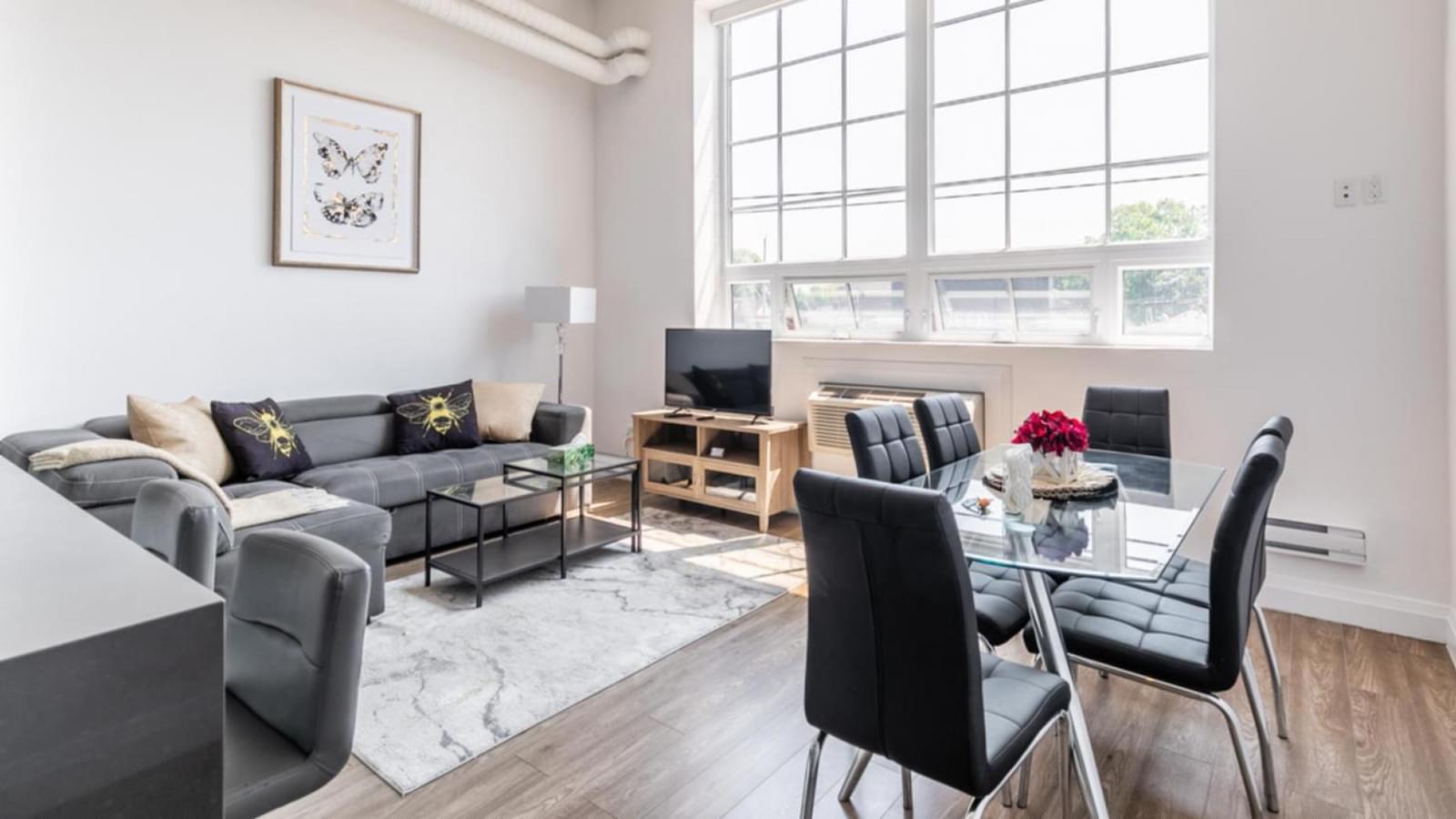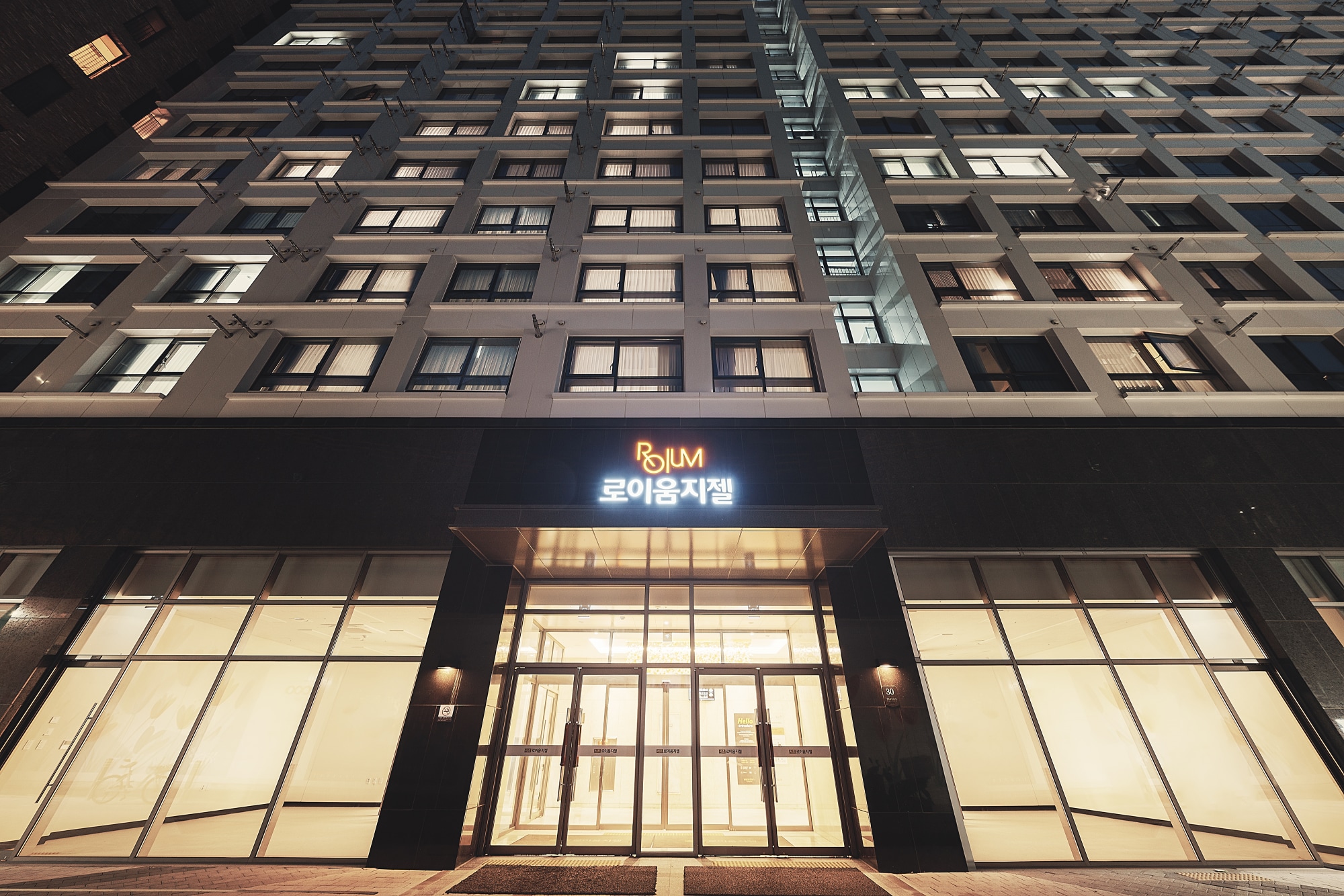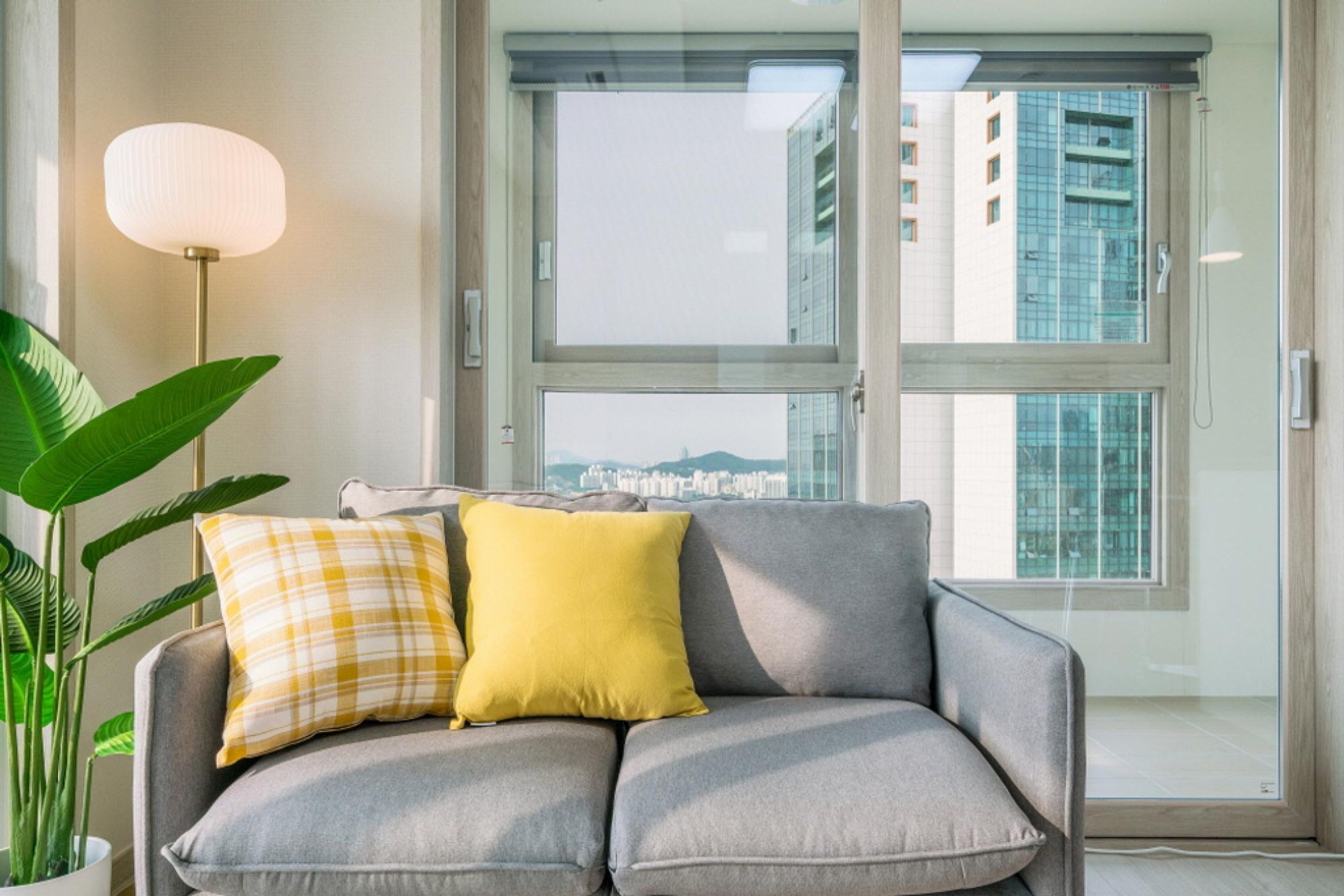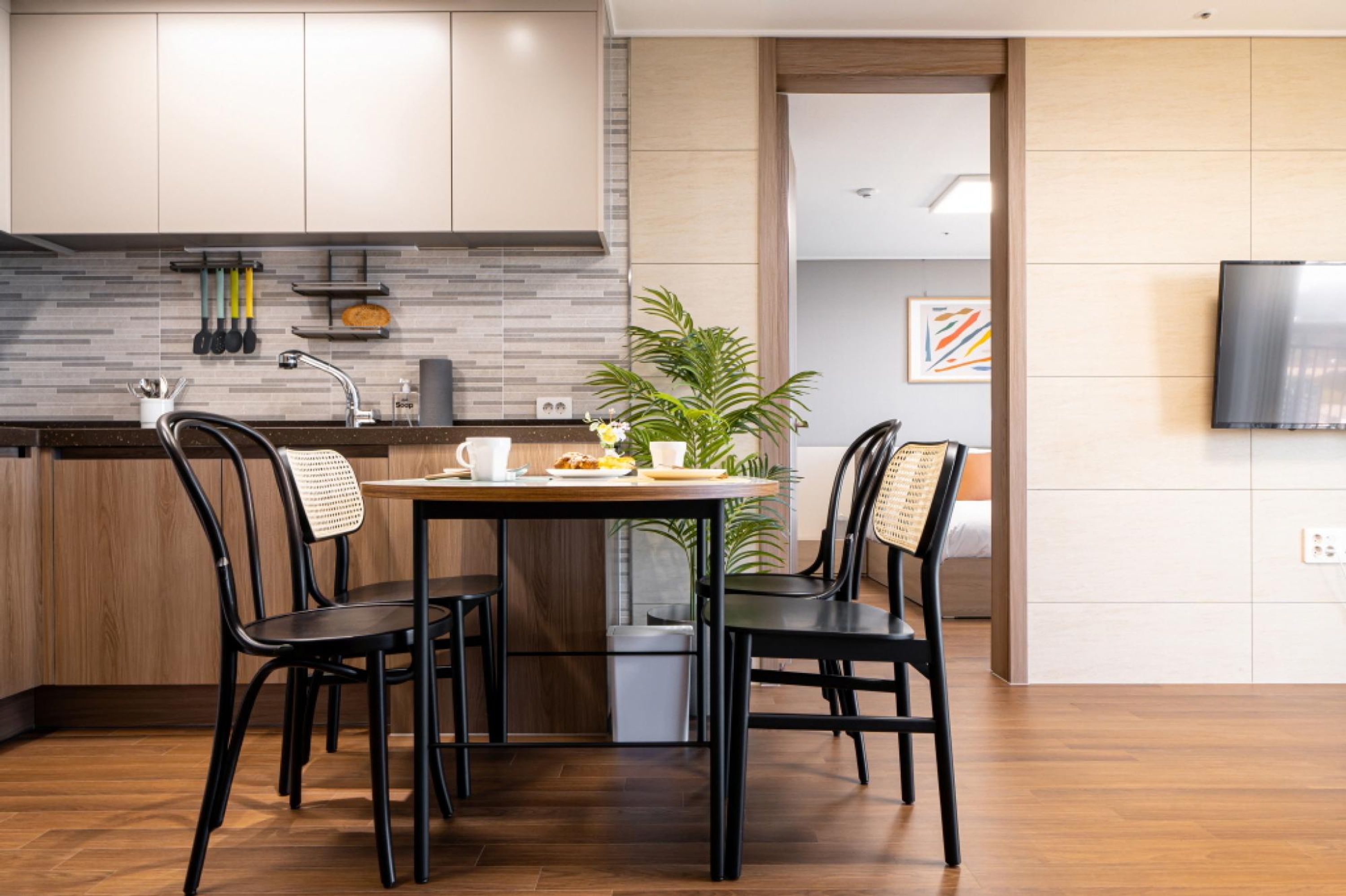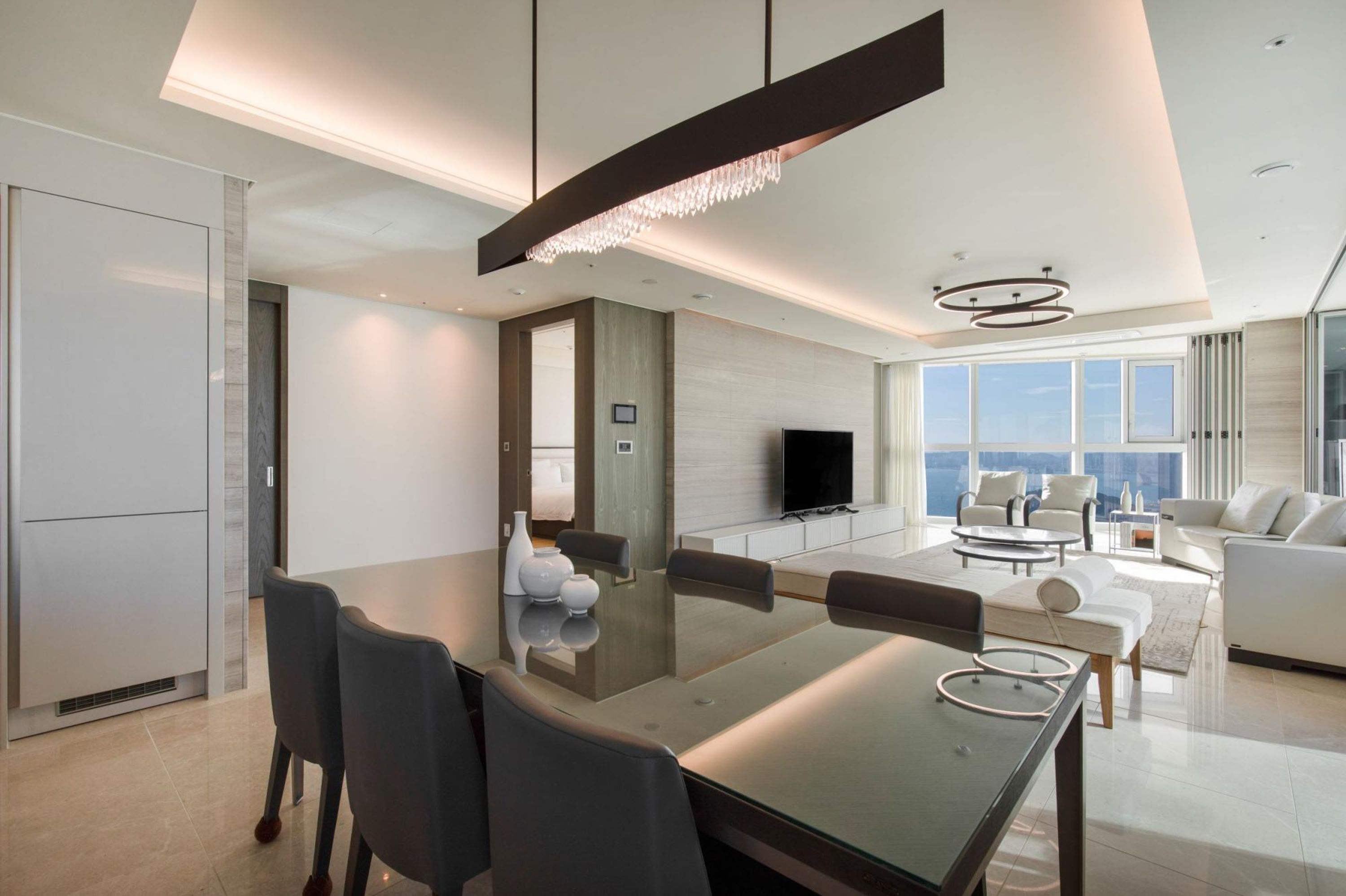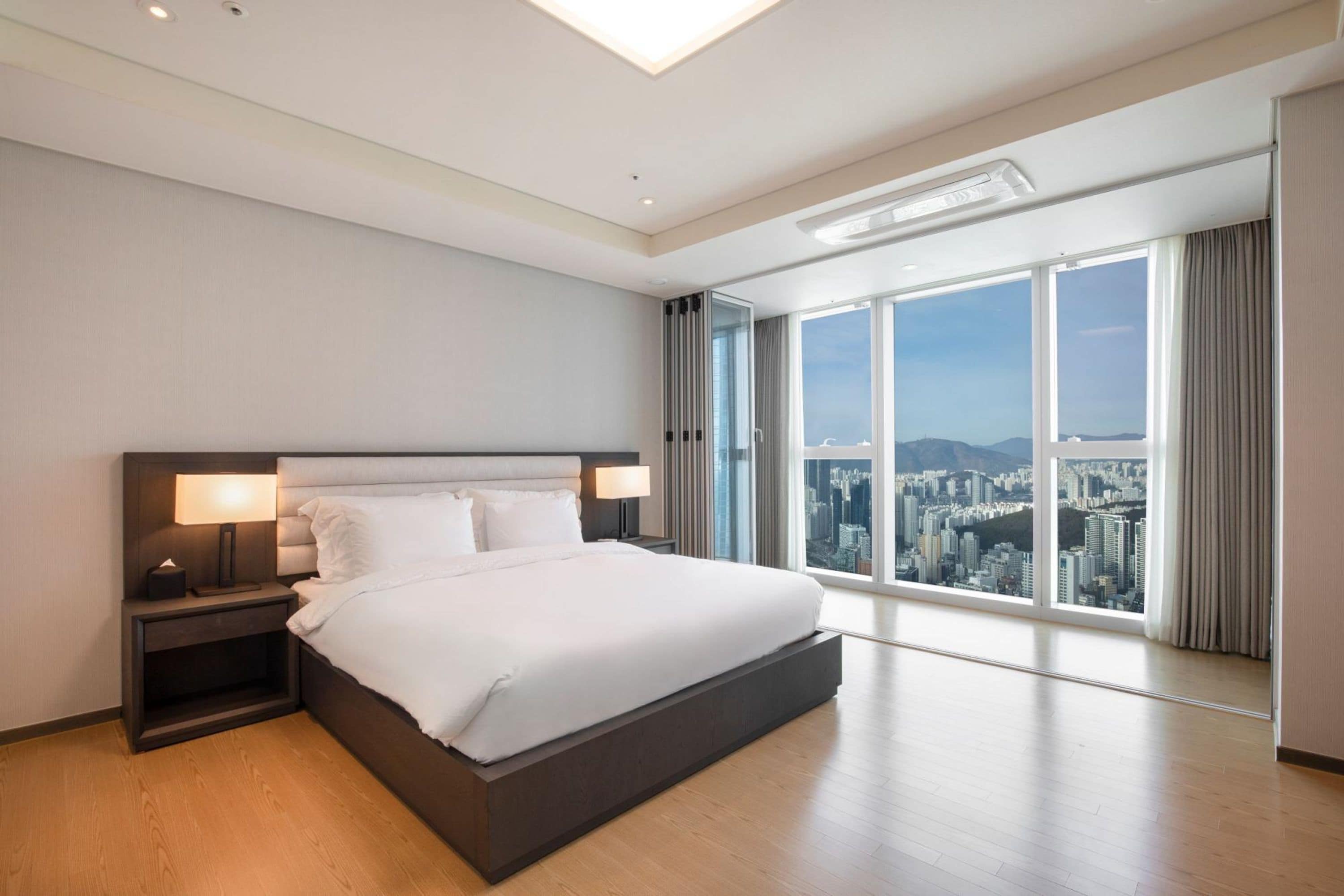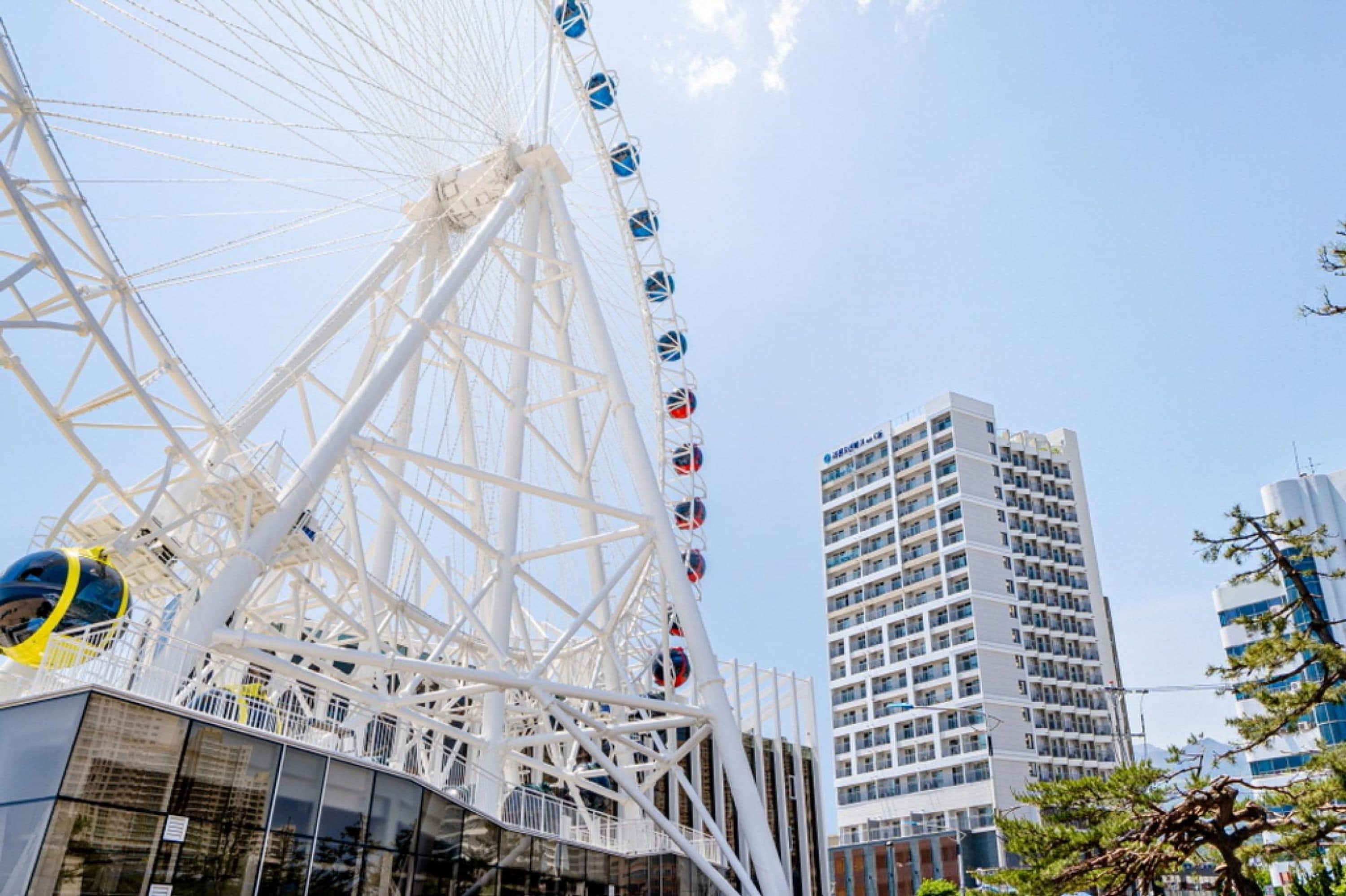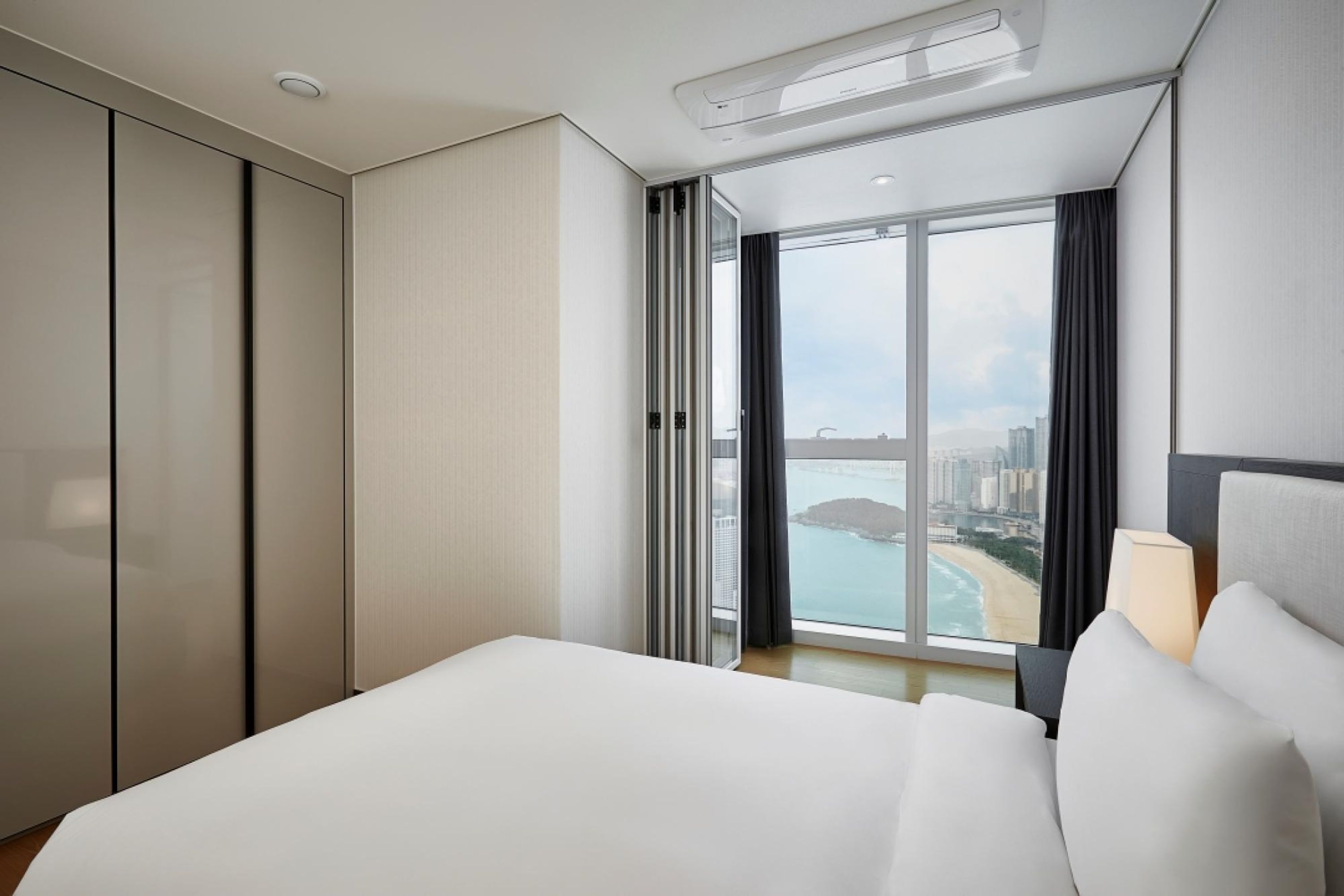South Korea Vacation Rentals
Explore 81 rental homes and villas in South Korea for your next vacation or business travel. With private vacation home rentals, enjoy a more personalized stay and a wide range of home amenities.
Types of vacation rentals in South Korea
Available properties in South Korea
Get to know South Korea
Here are some things to know to support your visit:
South Korea Overview
Embark on a journey to South Korea, a land where the echoes of ancient dynasties resonate amidst the hum of futuristic innovation. This enchanting destination is a harmonious blend of historical depth and contemporary zest, offering an array of experiences that will captivate your senses and leave you with memories to cherish.
Imagine waking up in your own private home, nestled in the heart of Seoul, with the city's energy just beyond your doorstep. Here, you can savor the luxury of solitude or the company of loved ones, with many properties offering pet-friendly accommodations, ensuring that even your furry companions can join in on the adventure. In this vibrant capital, modernity and tradition coalesce; towering skyscrapers cast their reflections upon the serene surfaces of the Han River, while the grandeur of ancient palaces like Gyeongbokgung and Changdeokgung beckons you to wander through centuries-old hallways.
Seoul's dynamic districts, such as the iconic Gangnam area, pulse with the rhythm of K-pop beats and the allure of cutting-edge fashion. For the music enthusiast, the city is a playground where the vibrant K-pop culture comes to life, offering a chance to explore the heart of this global phenomenon.
Culinary explorers will revel in the flavors of South Korea, where the sizzle of bulgogi on the grill and the zest of kimchi tantalize the palate. Dive into the bustling atmosphere of Gwangjang Market, where the aromas of street food and the warmth of local hospitality create an immersive dining experience.
Venture beyond the cityscape to discover South Korea's breathtaking natural beauty. Jeju Island, a gem off the southern coast, boasts idyllic beaches, lush landscapes, and the awe-inspiring Hallasan Mountain. Here, the option to stay in a private home with a swimming pool is not just a luxury, but a perfect way to enhance your island retreat, offering a serene oasis to unwind after a day of exploration.
For those seeking tranquility, the spiritual sanctuaries of Busan's mountain temples provide a serene escape, inviting you to partake in temple stays that offer a glimpse into the meditative practices of Korean Buddhism.
South Korea's coastline is a testament to its natural splendor, with picturesque waterfronts and sandy retreats that beckon beachgoers and nature lovers alike. The country's festive spirit comes alive through a vibrant tapestry of cultural celebrations, from the delicate beauty of spring's cherry blossoms to the enchanting glow of the Lotus Lantern Festival.
In South Korea, every moment is an opportunity to weave together the threads of history, culture, and contemporary life into a journey that is uniquely yours. Whether you're delving into the royal heritage of ancient palaces, embracing the electric nightlife of Seoul, trekking through emerald national parks, or basking in the tranquility of a secluded beach, South Korea offers a mosaic of experiences that promise to enrich and inspire.
Cultural Attractions in South Korea
South Korea is a dynamic destination that offers a rich tapestry of cultural experiences, making it an ideal choice for travelers with a passion for the arts, history, and local customs. The country's vibrant cities and picturesque countryside provide a backdrop for a journey through tradition and modernity.
Begin your cultural exploration in the heart of Seoul at the National Museum of Korea, which houses an extensive collection of artifacts that tell the story of Korea's fascinating history, from ancient times to the modern era. The museum's six floors of galleries include everything from prehistoric relics to fine art, providing a comprehensive overview of Korean culture.
Art enthusiasts will find Seoul's contemporary art scene particularly engaging. The city is dotted with galleries and art spaces, such as the Leeum, Samsung Museum of Art, which showcases a mix of traditional Korean art and cutting-edge contemporary works. The Dongdaemun Design Plaza, with its futuristic architecture, is a hub for design and creative exhibitions.
For a deep dive into history, visit the palaces of Seoul, such as Gyeongbokgung and Changdeokgung, where you can witness the grandeur of the Joseon Dynasty and explore the beautiful, traditional gardens. The Bukchon Hanok Village, with its well-preserved traditional Korean houses (hanok), offers a glimpse into the lifestyle of the past.
Live music is an integral part of Korean culture, and travelers can experience everything from K-pop concerts to traditional Korean music performances. The National Gugak Center in Seoul is the place to enjoy gugak, the traditional Korean music, with regular performances and even hands-on experiences.
For a unique cultural experience, participate in a temple stay program, where you can live like a monk for a few days, learning about Buddhism, meditation, and Korean temple food. This immersive experience provides insight into Korean spiritual practices and customs.
South Korea's cultural offerings extend beyond the capital. In Gyeongju, the ancient capital of the Silla Dynasty, you can explore the UNESCO-listed Bulguksa Temple and the Seokguram Grotto. The city of Jeonju, known for its well-preserved hanok village and as the birthplace of bibimbap, offers a feast for the senses with its traditional architecture and culinary delights.
Throughout the year, South Korea hosts numerous festivals that celebrate local customs and traditions, such as the Jeonju International Film Festival, the Busan International Film Festival, and the Boryeong Mud Festival. These events provide a lively and engaging way to experience Korean culture firsthand.
In South Korea, every visit is an opportunity to encounter the past, engage with the present, and even glimpse the future through its rich cultural landscape. Whether you're exploring a palace, enjoying a live performance, or participating in a local festival, South Korea offers an endless array of cultural experiences that will enrich your travels.
Family friendly activities in South Korea
South Korea is a dynamic destination that offers a wealth of experiences for families traveling with children. From high-tech amusement parks to educational museums, there's something to capture the imagination of every young traveler.
Begin your adventure in Seoul at Lotte World, a massive theme park that features a mix of thrilling rides, a beautiful indoor ice rink, and a folk museum that offers a glimpse into Korea's past. The Magic Island area, set on an artificial island inside a lake, is particularly enchanting for kids.
For a more educational experience, the National Museum of Korea is not only the country's largest museum but also offers children's galleries and interactive exhibits that make history come alive. The museum's surroundings in Yongsan Family Park are perfect for a family picnic and a leisurely stroll.
The COEX Aquarium in Seoul is another family favorite, showcasing over 40,000 sea creatures from around the globe. The aquarium is designed to be both fun and informative, with various themed zones and a mesmerizing underwater tunnel.
Outside of Seoul, head to Everland Resort, South Korea's largest theme park, located in Yongin. It features a zoo and water park, along with diverse attractions and flower arrangements that change with the seasons. The T-Express, one of the world's steepest wooden roller coasters, is a thrill for older kids.
For a taste of traditional Korean culture, visit the Korean Folk Village in Yongin. This living museum recreates life during the Joseon Dynasty and offers hands-on activities like pottery making and traditional games, as well as performances of folk music and dance.
Jeju Island, a UNESCO World Heritage Site, is a natural wonderland that's perfect for families. Explore the island's lava tubes, hike up Hallasan Mountain, or relax on the sandy beaches. The Teddy Bear Museum and Jeju Mini Mini Land, with its miniature replicas of famous landmarks, are particularly popular with younger children.
In Busan, the country's second-largest city, Haeundae Beach is a hit with families during the summer months. The SEA LIFE Busan Aquarium, located right on the beach, is an underwater journey through marine habitats, and the Busan Science Museum offers interactive exhibits that make learning about science fun for kids.
South Korea's blend of modern attractions, historical sites, and natural beauty ensures that families with children will have an unforgettable trip filled with education, adventure, and fun.
Outdoor activities in South Korea
South Korea, a land of ancient traditions and cutting-edge technology, also boasts an impressive array of natural wonders and outdoor activities that cater to the nature enthusiast. From its rugged mountain ranges to its serene coastal landscapes, South Korea offers a diverse palette of outdoor experiences.
Seoraksan National Park, a UNESCO Biosphere Protection site, is one of the most beautiful and iconic destinations in South Korea. With its majestic peaks, including the famous Ulsanbawi Rock, and deep valleys, the park is a paradise for hikers and climbers. The park's diverse range of flora and fauna, along with its hot springs and ancient temples, make it a perfect blend of nature and culture.
Jeju Island, known as the "Island of the Gods," is a volcanic island with a unique ecosystem and a mild climate year-round. It's home to Hallasan, South Korea's highest mountain, which is actually a dormant volcano. The island's hiking trails, lava tubes, and waterfalls, such as Cheonjiyeon Falls, are a draw for adventurers. Jeju's beaches also offer excellent opportunities for water sports, including scuba diving in its crystal-clear waters.
The Jirisan National Park is another hiker's haven, with miles of trails that traverse South Korea's largest terrestrial national park. The park is home to the country's second-highest peak, Jirisan Mountain, and is a place of spiritual significance, with several ancient temples nestled in its hills.
For those who enjoy cycling, the Four Rivers Bike Path offers an extensive network of cycling trails that connect Seoul to the southern regions of the Korean peninsula. This well-maintained path takes riders through a variety of landscapes, including urban areas, rural farmland, and along riverbanks.
The Demilitarized Zone (DMZ), the border barrier that divides North and South Korea, has become an unexpected haven for wildlife and is now one of the most well-preserved areas of temperate habitat in the world. Ecotours are available that allow visitors to explore this unique area, which has become a peace and nature park.
For a more relaxed outdoor experience, the Suncheon Bay Wetland Reserve is a coastal wetland that provides a habitat for a wide variety of bird species. The reed fields and boardwalks make for a serene and picturesque setting, especially during the sunset.
South Korea's natural wonders are complemented by its four distinct seasons, each offering its own unique beauty and outdoor activities. Whether you're looking to conquer mountain peaks, explore volcanic landscapes, or simply enjoy the tranquility of nature, South Korea's outdoor adventures are sure to enrich your travel experience.
Weather in South Korea
South Korea offers a diverse climate that changes with the seasons, providing a range of experiences for travelers throughout the year. The country experiences four distinct seasons: spring, summer, autumn, and winter, each with its own unique weather patterns.
Spring, from April to June, is one of the most pleasant times to visit South Korea. The weather is warm but not too hot, with average temperatures ranging from 10°C to 22°C. This is the season when cherry blossoms and other flowers are in full bloom, particularly in April, creating a picturesque setting for visitors. Humidity is moderate, and there is less rainfall compared to the summer months, making it an ideal time for outdoor activities and festivals.
Summer, from July to August, is hot and humid, with temperatures often climbing above 30°C. This is also the monsoon season, so expect heavy rainfall, especially in July. The high humidity can make it feel hotter than it actually is, so many travelers seek out water-based activities or head to the cooler mountain regions.
Autumn, from September to November, is another popular time to visit due to its mild and pleasant weather. Temperatures range from 10°C to 25°C, and the humidity drops, making it comfortable to explore. This season is also known for its stunning fall foliage, with vibrant colors adorning the country's many mountains and national parks.
Winter, from December to February, can be quite cold, especially in the northern parts of the country, with temperatures often dropping below freezing. Snowfall is common, and this season is perfect for winter sports enthusiasts who can visit the numerous ski resorts in South Korea. The crisp winter air is typically dry, with less precipitation than other seasons.
The most popular weather conditions tend to be in the spring and autumn when the temperatures are moderate, and the scenery is at its most striking. These seasons are also less crowded than the peak summer months, offering a more relaxed travel experience.
For those looking to enjoy South Korea's natural beauty and cultural events without the extremes of summer heat or winter cold, the shoulder seasons of April to June and September to November are highly recommended. These periods provide an excellent balance of pleasant weather and the opportunity to partake in a variety of festivals and outdoor activities.
Transportation in South Korea
South Korea, a country known for its rich history, modern cities, and stunning natural landscapes, offers a comprehensive and efficient transportation network that caters to travelers' needs from arrival to departure and everything in between.
International visitors typically arrive in South Korea through Incheon International Airport, which is situated near Seoul and is considered one of the largest and busiest airports in the world. From Incheon, travelers can take the Airport Railroad Express (AREX) that provides a direct connection to Seoul Station in the heart of the city. Alternatively, buses, taxis, and car rental services are available for a more personalized journey to various destinations.
For those venturing into South Korea by sea, ferry services connect to various ports, including Busan, Incheon, and Jeju Island, from neighboring countries like Japan and China. Additionally, the country's high-speed train, the KTX (Korea Train Express), offers a swift and comfortable way to travel between major cities such as Seoul, Busan, Daegu, and Gwangju.
Within cities, South Korea's public transportation is renowned for its punctuality and convenience. Seoul's subway system, in particular, is extensive and user-friendly, with signs and announcements in English. Buses complement the subway network, reaching areas that are less accessible by train. Taxis are also abundant and relatively affordable, and ride-hailing apps like Kakao T provide an alternative for those seeking a ride at their fingertips.
For a more scenic and leisurely pace, renting a bicycle is a great option in cities like Seoul and Busan, where bike lanes and rental services are readily available. Exploring neighborhoods like Insadong in Seoul or Haeundae in Busan by bike can be a delightful experience.
As for walkability, many of South Korea's urban areas are pedestrian-friendly, especially in shopping districts, traditional markets, and along the Cheonggyecheon Stream in Seoul. However, given the country's mountainous terrain and the spread-out nature of some attractions, relying solely on walking isn't always practical for longer distances.
In summary, South Korea offers a seamless transportation experience for travelers, with options ranging from high-speed trains and efficient public transit to walking and cycling. Whether you're navigating the urban sprawl of Seoul or exploring the coastal city of Busan, you'll find getting around South Korea to be both convenient and enjoyable.

